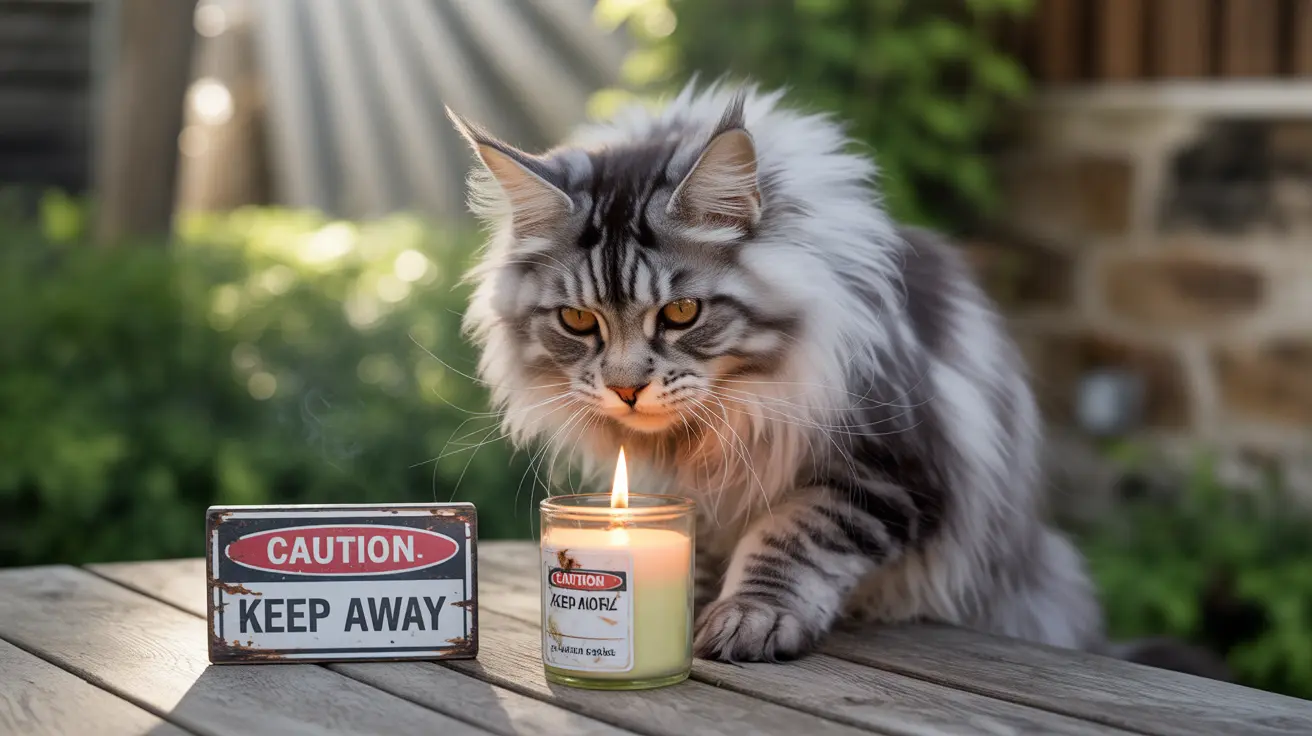If you're looking to keep mosquitoes at bay while keeping your cat safe, you might be wondering about citronella's safety for felines. The answer is clear: citronella products pose significant risks to cats and should be avoided in households with feline companions.
In this comprehensive guide, we'll explore why citronella can be dangerous for cats, what forms pose the greatest risks, and what alternatives you can safely use to protect both your outdoor spaces and your beloved pet.
Understanding Citronella and Its Effects on Cats
Citronella, while natural and effective for insect control, contains compounds that cats' bodies simply aren't equipped to handle. Unlike humans, cats lack specific liver enzymes needed to break down certain essential oils, including citronella. This biological difference makes them particularly vulnerable to citronella toxicity.
Different Forms of Citronella and Their Risks
Citronella comes in various forms, each presenting unique dangers to cats:
- Essential oils (highest risk)
- Candles and diffusers
- Garden torches
- Sprays and repellents
- Natural citronella plants
Signs of Citronella Toxicity in Cats
Recognizing the symptoms of citronella exposure is crucial for cat owners. Watch for these warning signs:
Respiratory Symptoms
- Coughing or wheezing
- Rapid breathing
- Difficulty breathing
- Open-mouth breathing
Digestive Issues
- Excessive drooling
- Vomiting
- Diarrhea
- Loss of appetite
Other Warning Signs
- Skin irritation
- Excessive grooming
- Lethargy
- Tremors or seizures
What to Do If Your Cat Is Exposed to Citronella
If you suspect your cat has been exposed to citronella, take immediate action:
- Remove your cat from the area of exposure
- Clean any oil from fur using mild dish soap and warm water
- Contact your veterinarian immediately
- Monitor your cat closely for developing symptoms
Safe Alternatives to Citronella
Instead of citronella, consider these cat-safe alternatives for pest control:
- Rosemary plants
- Lemon balm
- Catnip (bonus: your cat will love it!)
- Pet-safe insect screens
- Electronic mosquito repellers
Prevention Tips for Cat Owners
To keep your cat safe from citronella exposure:
- Always check product labels for citronella
- Inform guests about not bringing citronella products
- Create cat-free zones for any necessary outdoor pest control
- Keep emergency vet contacts readily available
Frequently Asked Questions
Is citronella essential oil safe to use around cats?
No, citronella essential oil is toxic to cats and should never be used in homes with feline pets. Cats can be affected through direct contact, ingestion, or inhalation of the oil.
What are the signs of citronella poisoning in cats?
Common signs include respiratory distress, drooling, vomiting, skin irritation, lethargy, and in severe cases, tremors or seizures. Any of these symptoms require immediate veterinary attention.
Can citronella candles or diffusers cause health problems for my cat?
Yes, even citronella candles and diffusers can cause health problems for cats through the release of oil particles into the air, which cats can inhale or get on their fur and later ingest while grooming.
How should I respond if my cat is exposed to citronella oil?
Remove your cat from the exposure source immediately, wash off any oil with warm water and mild dish soap, and contact your veterinarian right away. Don't wait for symptoms to develop.
Are there any safe natural insect repellents I can use around cats instead of citronella?
Yes, safer alternatives include rosemary and lemon balm plants, physical barriers like screens, and electronic mosquito repellers designed for pet households.
Remember, when it comes to your cat's safety, it's always better to err on the side of caution. While citronella might be an effective natural insect repellent, the risks it poses to cats make it unsuitable for homes with feline family members. Stick to pet-safe alternatives and always consult with your veterinarian about the safety of any new products you plan to use around your cats.






